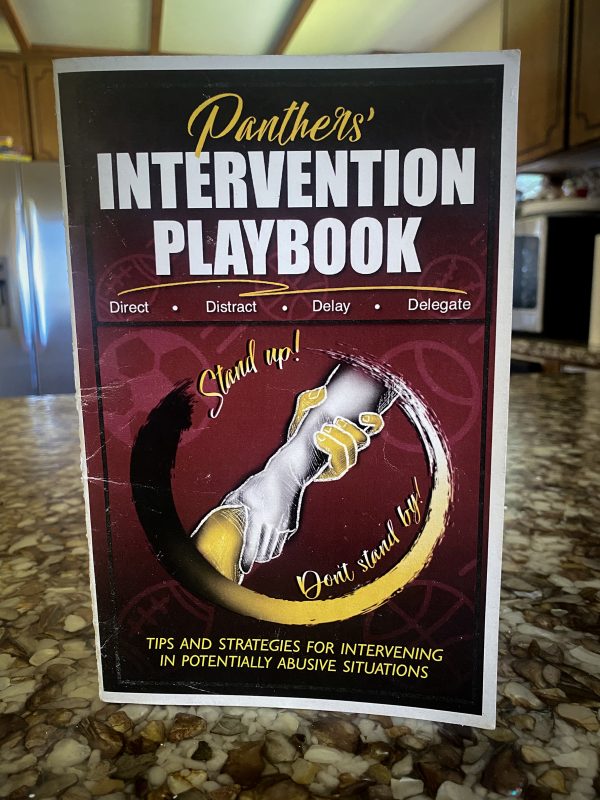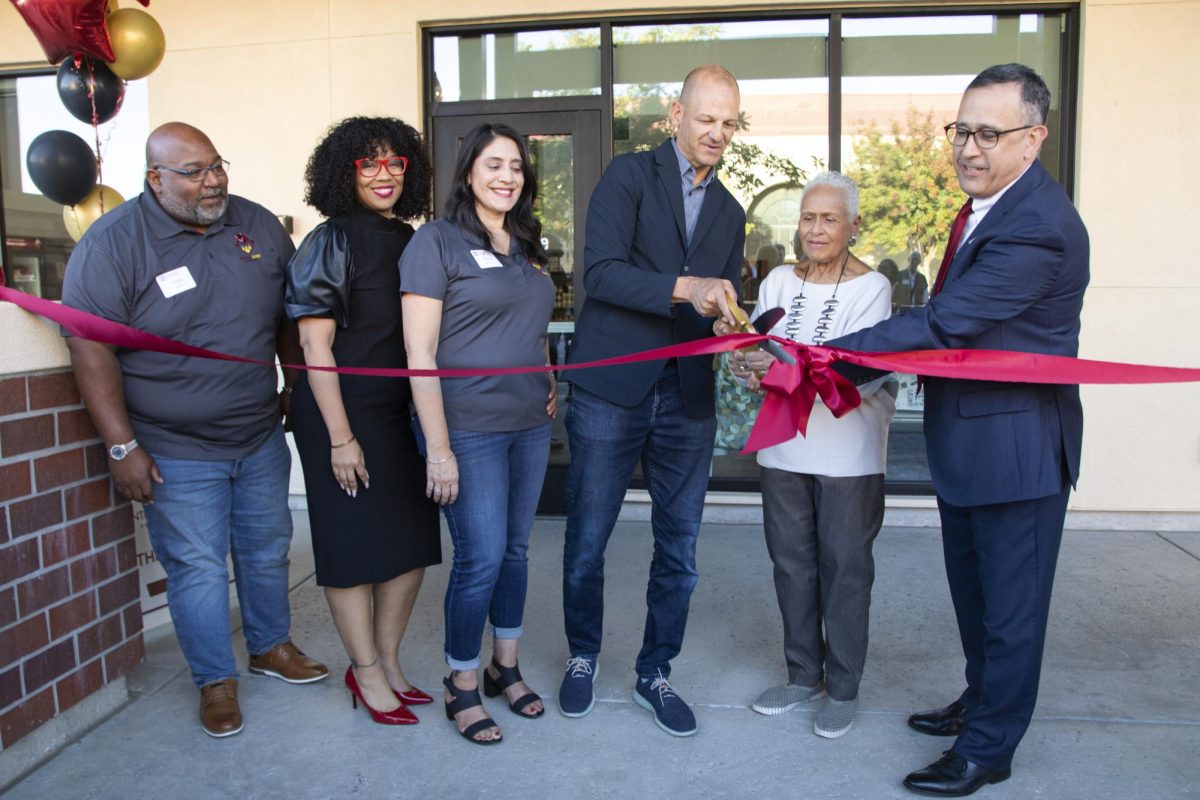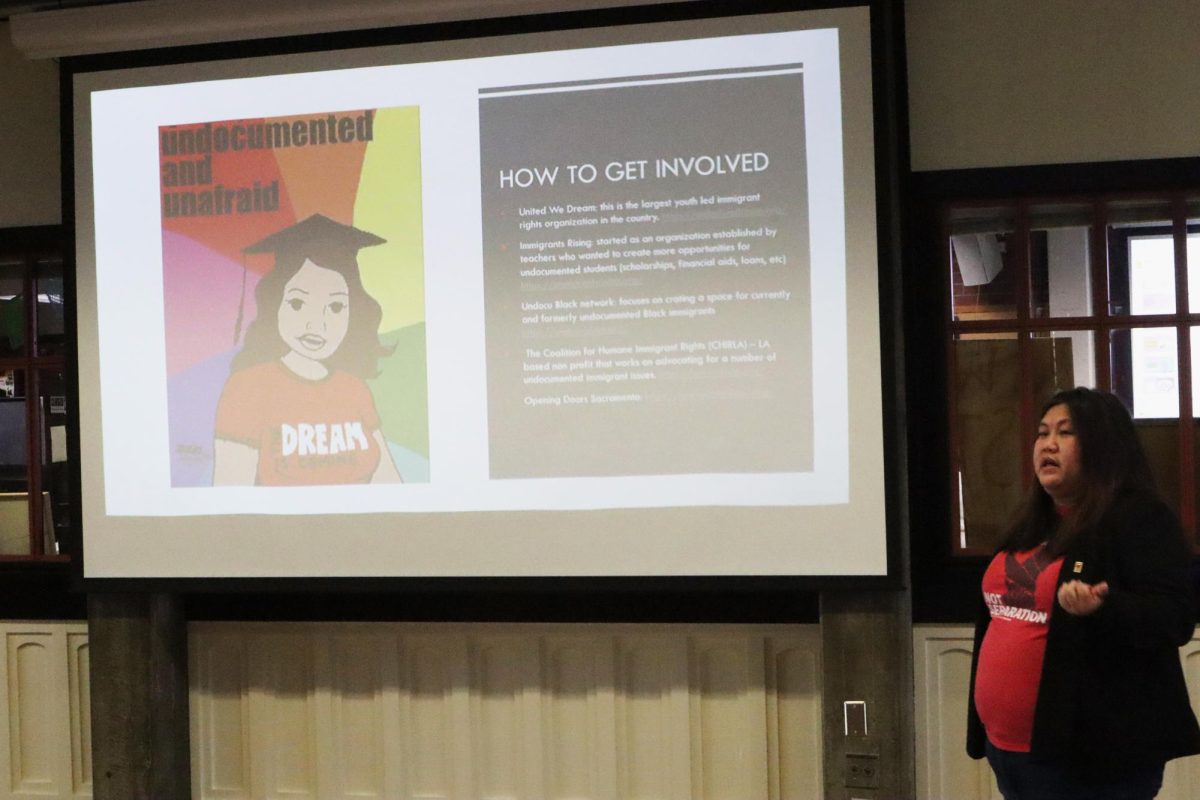Being able to intervene in troubling situations is a lot like being able to make cookie dough, according to Andre Coleman, dean of campus interventions. Just as there are different types of cookies, there are different types of altercations that require the same basics of intervention, just as any cookie needs the same base of cookie dough to start.
“If you know how to make cookie dough, then you know how to make chocolate chip cookies, you know how to make peanut butter, you know how to make white chocolate chip macadamia nut,” says Coleman.
“Sexual assault might be more emotionally charged; domestic violence may have a greater element of physical violence,” Coleman continues “They all have their own little twist to it, just like each cookie dough has its own twist, but if you know how to make just dough, cookie dough, then you can go pretty much in any direction you can handle and then it’s about learning the nuance of each situation.”
Coleman is one of the creators of the Panthers’ Intervention Playbook, a guide filled with strategies and plays on how to intervene in problematic situations. Ashley Gibbs, a medical assistant in Health Services, Monika Aldabe, student support specialist, Emily Zavala-Aguilar, who was formerly the WEAVE confidential advocate, Linda Lee, clerk, and Yesenia Ix, who is an administrative assistant, also worked with Coleman to create the playbook.
The playbook contains 14 different intervention methods that adhere to the four Ds of intervention: direct, distract, delay or delegate. According to Coleman, the playbook is meant to equip community members with the basic skills of intervening so that when a potentially dangerous situation arises, people can know what to do.
According to Coleman the playbook was distributed around campus before the COVID-19 shutdown, but since City College moved to remote operations and the Campus Interventions website is still being updated, students in the meantime can find it in a Google document in the link attached below and download it as a PDF.
Coleman explains that there has been a lot of research about why people do not stand up and get involved in confrontational situations.
“They think someone else is gonna do it, which is officially called the bystander effect,” says Coleman. “They don’t know what to do. They’ve never been exposed to information on how to do it or anything like that, so they feel inadequate or not equipped with the skills needed to intervene. And then the other one is that they’re just flat out scared sometimes, and that’s legit, too.”
However, just as there are things that keep people from intervening, there are also ways to constructively intervene.
“The bystander effect is, ‘I’m waiting for someone else to do it,’ and what the research shows is when someone else engages, other people will then engage. But everyone is waiting for the first person,” says Coleman.
Throughout the playbook, Coleman and his team created sample dialogues, “I” statements and verbal judo that give guidance on how to respond better when intervening in troubling situations. Communication is crucial, he stresses, and is a way to de-escalate the situation.
“When you’re intervening, adrenaline kicks in, emotions kick in, there’s things that are kickin’ up in you, and it’s really hard because your almost natural knee jerk way to respond may not be the best way,” Coleman says. “So we have to access something else in us, intellectually, at a time of high emotion, [things that] don’t usually go together to try to make sure we’re using the right words and the right approach so that the conversation doesn’t get distracted from the real issue.”
Coleman says that a lot of intervention work, especially around sexual assault, is targeted toward women, who are the majority of victims. He explains that most of the time men are assaulted in prison, according to data.
The playbook centers around a sports metaphor with illustrations that help explain the 14 intervention methods, and, guide people to take action.
“What’s nice about this is it’s geared towards folks in sports because you can get that analogy if you understand sports,” Coleman explains.”I like to think of it as a kind of undercover way to just send a message to men as well.”
Coleman adds that physical violence is the most aggressive and visual way to do harm, but he notes that people’s choice of words and behavior can also be harmful.
“I’m really concerned about what I feel is our loss of humanity and that [in] our society we’re losing this sense of caring for someone for the sake of caring,” says Coleman. “There is just someone who’s hurt, someone in need, and I don’t have to know you to step in and stand up. And I fear that we’re losing that in our world, and it makes it easier to not see warning signs that someone’s gonna do harm like a mass shooter.”
Coleman explains that everyone needs help at some point and that interdependence and interconnectedness with others is vital in a community.
“A fundamental part of confrontation is really trying to be like a mirror for folks for them to see themselves because sometimes we’re in the haze of the moment, and we can’t see ourselves.”
Link to the Panthers’ Intervention Playbook:
The Campus Interventions Office continues to help students and staff by providing services through Wellness Wednesday on Zoom.



























